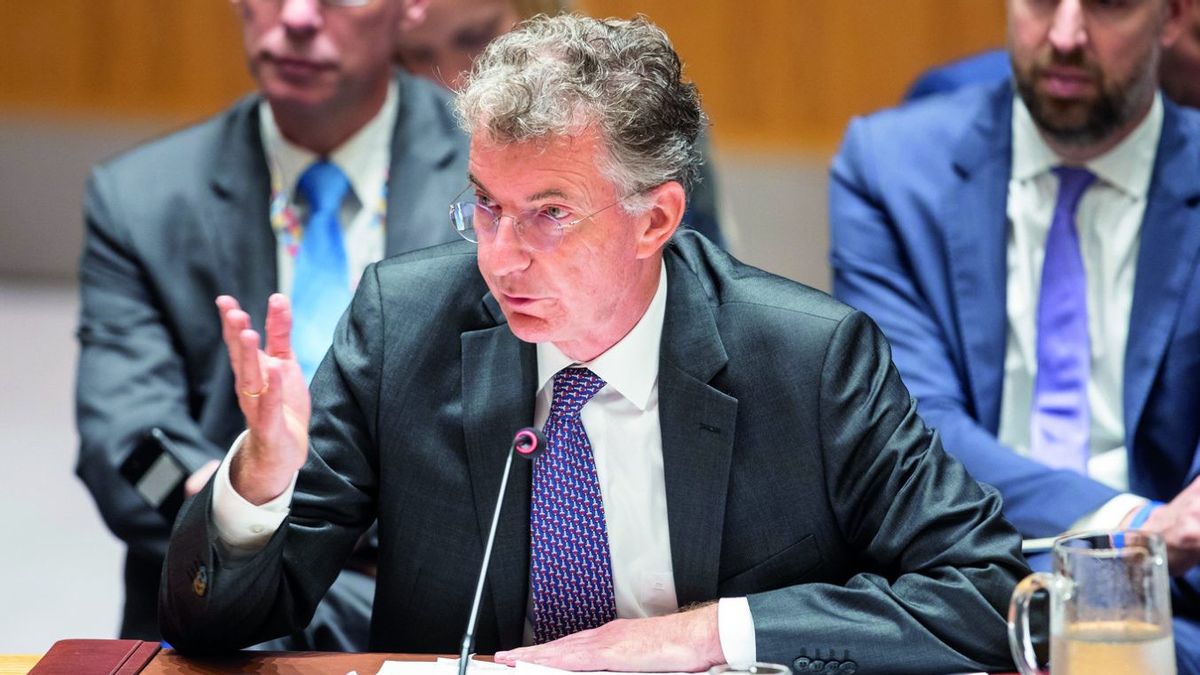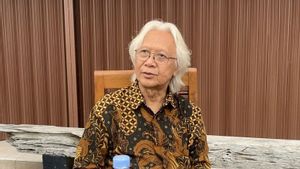JAKARTA - Germany should step up its leadership on the international stage and liberalize its arms export policies, including considering arms shipments to Ukraine, the chairman of the Munich Security Conference elected and senior German diplomat, Christoph Heusgen, said in an interview.
Germany has come under fire for refusing to send weapons to Ukraine, unlike other Western allies, amid fears of a new Russian invasion. Germany has a longstanding policy of not exporting weapons to war zones, partly rooted in the bloody, pacifist history of the 20th century.
Heusgen said Berlin showed political leadership in a crisis, for example reviving the Normandy format of talks with representatives from Ukraine, Russia, France and Germany.
But Germany should consider exporting weapons so Ukraine can defend itself too, said Heusgen, a former senior German diplomat who will soon chair MSC at the Feb. 18-20 event. He said using history as an excuse was no longer appropriate or even logical.
"We made it too easy on ourselves, to say we've always done it that way, so we carried on," he told Reuters.
"We have to argue about a more active role for Germany in foreign policy, and security policy and (arms export policy) are part of it."
Heusgen said Russian President Vladimir Putin appeared to be triggering a crisis with Ukraine to increase his popularity at home, but did not appear to have decided to act.
"He looked closely at how we would react." Heusgen.
Germany, the second-largest donor to the United Nations, has shown more foreign policy leadership under former Chancellor Angela Merkel, Heusgen said, for example, becoming more active in Africa.
As previously reported, the former heavyweight boxing champion who is now the mayor of Kyiv, Vitali Volodymyrovych Klitschko, also known as Vitali Klitschko, was left speechless by the offer of helmets from Germany, compared to arms assistance from the United States and Britain.
Germany will supply 5,000 military helmets to Ukraine to help defend against a possible Russian invasion. Defense Minister Christine Lambrecht said Berlin, which faces growing criticism for its refusal to supply weapons to Ukraine as other Western countries have done, was responding to requests for military equipment, particularly helmets.
"The German government agrees that we don't send lethal weapons into crisis areas because we don't want to fuel the situation, we want to contribute in other ways," Minister Lambrecht said at a joint news conference with British Defense Secretary Ben Wallace.
He added that Germany was also supplying field hospitals to Ukraine and was still looking for a peaceful solution. Earlier, the Ukrainian Ambassador in Berlin had urged the German Government to at least help by sending 100,000 helmets and protective vests.
In response to this, Klitschko, who lived for many years in Germany and is now mayor of the Ukrainian capital, was not impressed by the offer of a helmet.
"The behavior of the German government left me speechless. The Ministry of Defense does not seem to have realized that we are faced with a perfectly equipped Russian army that could start another invasion of Ukraine at any moment," he told the Bild daily.
"What kind of support will Germany send next?" he was joking. "Pillow?"
He said Ukraine is a friendly country that has a vision to build itself into a modern European country.
The English, Chinese, Japanese, Arabic, and French versions are automatically generated by the AI. So there may still be inaccuracies in translating, please always see Indonesian as our main language. (system supported by DigitalSiber.id)













